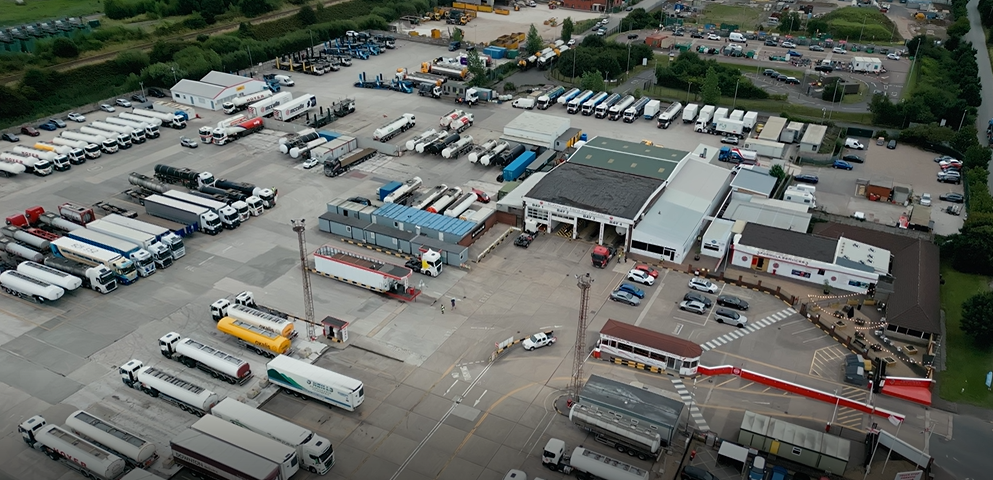
Miranda Blake
Directiva sobre el tiempo de trabajo de los conductores: Guía para camioneros
Creado: 25/10/2024
•
Actualizado: 29/10/2024
Como conductor de camiones en el Reino Unido, es fundamental conocer a fondo la compleja normativa que regula las horas de trabajo y los periodos de descanso de los conductores. La Directiva sobre el tiempo de trabajo de los conductores (DTT), también conocida como Directiva sobre el transporte por carretera, es un conjunto de normas que regulan el número máximo de horas que puede trabajar un conductor, las pausas obligatorias que debe hacer y los periodos de descanso que debe respetar. El incumplimiento de esta normativa puede acarrear fuertes multas e incluso la inmovilización de su vehículo.
Entender la Directiva sobre el tiempo de trabajo de los conductores
La Directiva sobre el tiempo de trabajo de los conductores es una normativa de la Unión Europea cuyo objetivo es garantizar la seguridad de todos los usuarios de la carretera evitando los accidentes relacionados con la fatiga. Las normas sobre el tiempo de trabajo de los conductores se aplican a quienes conducen vehículos de más de 3,5 toneladas, independientemente de si la persona opera en el Reino Unido o en toda la UE.
Límites diarios de conducción
En virtud de la WTD, los camioneros del Reino Unido están sujetos a un tope diario de conducción de 9 horas, que puede aumentarse a 10 horas un máximo de dos veces por semana. Tras 4,5 horas de conducción continua o intermitente, los conductores deben hacer una pausa de al menos 45 minutos. Alternativamente, pueden optar por una pausa dividida, en la que la primera sea de al menos 15 minutos, seguida de una segunda de al menos 30 minutos.
Restricciones de conducción semanales y quincenales.
Los camioneros británicos tienen un límite de conducción semanal de 56 horas, mientras que el límite quincenal es de 90 horas. Esto significa que si un conductor hace 56 horas en una semana, sólo puede trabajar 34 horas la semana siguiente para no superar el límite de 90 horas quincenales.
Working time caps
Además de las restricciones del tiempo de conducción, la DTT también impone límites al número total de horas que un conductor puede trabajar a la semana. El tiempo de trabajo semanal medio, incluidas las tareas de conducción y las que no lo son, no debe superar las 48 horas, calculadas sobre un periodo de referencia de 17 o 26 semanas. El tiempo máximo de trabajo en una sola semana es de 60 horas, siempre que no se supere la media de 48 horas.
Periodos de descanso
La DTT obliga a los conductores de vehículos pesados a tomar un período de descanso diario de al menos 11 horas consecutivas, que puede dividirse en 2 períodos, siendo el primero de al menos 3 horas de duración. Los conductores también pueden optar por un período de descanso diario reducido de nueve horas, pero esto sólo puede hacerse hasta tres veces por semana. Además, es obligatorio un periodo de descanso semanal de al menos 45 horas, aunque puede reducirse a 24 horas una vez en un periodo de 2 semanas.

Exenciones
Aunque la Directiva de tiempo de trabajo se aplica a la mayoría de los conductores de camiones del Reino Unido, hay ciertas excepciones que pueden aplicarse en circunstancias específicas. Por ejemplo, quienes no conduzcan más de 10 veces en un periodo de 26 semanas o 15 veces en un plazo superior a 26 semanas pueden no estar obligados a controlar su directiva sobre el tiempo de trabajo.
Consecuencias del incumplimiento
El incumplimiento de la DTT puede tener graves consecuencias tanto para los conductores como para los operadores de flotas. Los conductores a los que se sorprenda infringiendo la normativa pueden enfrentarse a multas de hasta 1.500 £, y si infringen las normas más de 5 veces en 28 días, pueden ser llevados a juicio y se les puede inmovilizar el vehículo.
Para los operadores de flotas, la responsabilidad es mantener el cumplimiento en toda la flota. Si no se aplican medidas suficientes para controlar y hacer cumplir la DTT, la DVSA puede emitir un aviso de mejora y, en casos extremos, exigir el cese de las operaciones hasta que se resuelvan los problemas.
Importancia de las soluciones de gestión de flotas integradas en el tacógrafo
Para gestionar eficazmente las horas de trabajo de los conductores y garantizar el cumplimiento de la DTT, los operadores de flotas deberían considerar la posibilidad de invertir en soluciones de gestión de flotas integradas en tacógrafos. Estas tecnologías específicas permiten un control eficaz del comportamiento de los conductores y el registro automático de los datos de conducción y tiempo de trabajo, por lo que es prácticamente imposible que el incumplimiento pase desapercibido.
Al asociarse con un proveedor de confianza como SNAP, los operadores de flotas pueden aprovechar las herramientas de gestión de flotas más avanzadas y acceder a una amplia red de socios de servicios, asegurándose de que sus conductores cuentan con el apoyo que necesitan para cumplir la normativa y mantenerse seguros en la carretera.
Impacto de la escasez de conductores
También hay que tener en cuenta la escasez de conductores en el Reino Unido. Está resultando ser un gran problema dentro del sector. El sector ha sufrido un descenso en el número de conductores de vehículos pesados: la pandemia retrasó 30.000 exámenes para nuevos conductores, y el Brexit ha afectado duramente a las empresas de flotas: muchos camioneros europeos han abandonado el Reino Unido.
Un informe 2023 de SNAP sugiere que el sector podría alcanzar un "punto de inflexión" en los próximos 10-15 años. Podría demostrarse que la Directiva sobre el tiempo de trabajo de los conductores es justo lo que el sector necesita para volver a hacer deseable la profesión y ofrecer un mayor equilibrio a los conductores. Más información sobre lo que se puede hacer para solucionar la escasez de conductores en leer el informe.



